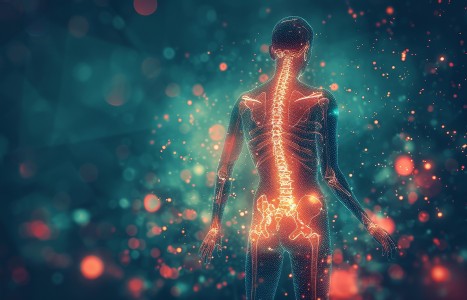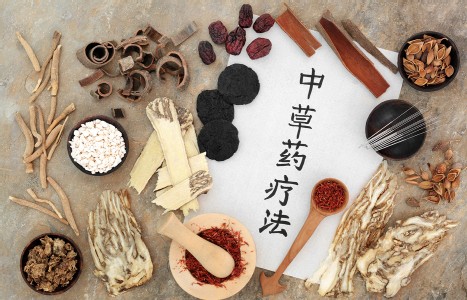Chronic pain afflicts over 20% of the adult population. Sadly, most MDs have essentially no education in treating pain, beyond offering a few toxic medications. Then they tend to steer people with pain away from those health practitioners who are trained. This puts the acupuncture community on the front lines for addressing this epidemic.
Treatment of ADD/ADHD
Attention-deficit disorder and attention-deficit hyperactivity disorder (ADD/ADHD) are developmental conditions in which the affected person is unable to concentrate and is easily distracted, with or without accompanying hyperactivity. There must be an onset of symptoms before age 7 that causes significant social or academic impairment. The incidence of ADD/ADHD is 3 percent to 7 percent in school-age children, and 2 percent to 7 percent in adults.
The pathology of ADHD is not clear. There is speculation that certain areas of the brain related to attention are deficient in neural transmission. The neurotransmitters dopamine and norepinephrine have been associated with ADD/ADHD. Stimulants such as Ritalin (methylphenidate) and Dexedrin (dextroamphetamine), are generally prescribed for treatment of ADD/ADHD. Common short-term side effects include significant insomnia, appetite suppression and weight loss, headaches, mood fluctuations and tic exacerbation in children. Long-term risks include possible growth retardation, especially with prolonged use. Furthermore, stimulants have significant abuse potential and must be carefully regulated.
Herbal Treatment And Research
According to traditional Chinese medicine, ADD/ADHD is diagnosed as liver wind rising with shen (spirit) disturbance arising from liver yin deficiency. To treat these disorders, both sedative and tonic herbs must be used together to restore normal balance in the body.
To extinguish liver wind and calm liver yang rising (manifesting in muscle twitching or restlessness), mu li (Concha ostreae), jue ming zi (Semen cassiae) and gou teng (Ramulus uncariae cum uncis) are used. These three herbs neutralize mood. Bie jia (Carapax trionycis) and gui ban (Plastrum testudinis) tonify liver yin and further assist in extinguishing liver wind. To address yin deficiency, bai shao (Radix paeoniae alba), sheng di huang (Radix rehmanniae) and mai men dong (Radix ophiopogonis) are used. Bai shao also softens the liver to relieve spasms, cramps and stiffness that may be associated with convulsion or seizure.
Mai men dong also sedates heart fire to relieve shen disturbance. Shi chang pu (Rhizoma acori) and yuan zhi (Radix polygalae) are two aromatic herbs that disperse phlegm obstructing the orifices and help restore cognitive and sensory functions. They are often used for forgetfulness and inability to concentrate. Yu jin (Radix curcumae) clears heart heat, opens orifices and promotes consciousness. Tai zi shen (Radix pseudostellariae) is neutral and tonifies both qi and yin. Chuan xiong (Rhizoma ligustici chuanxiong) promotes blood circulation and relieves stagnation and pain in the channels that may be caused by long-term stiffening or twitching of muscles. Zhi gancao (Radix glycyrrhizae preparata) nourishes the heart and harmonizes the entire formula. From pharmacological perspectives, these herbs improve memory and learning abilities, eliminate toxic substances or allergens that increase the risk of ADD/ADHD and balance the central nervous system to relieve hyperactivity.1-8
In one laboratory study, administration of shi chang pu was associated with a dose-dependent effect in improving memory.1 Furthermore, in one clinical trial, 30 children with low IQ were treated, resulting in mild to moderate improvement in classroom performance using an herbal formula containing shi chang pu and yuan zhi. The treatment protocol was to administer the formula twice daily for two weeks per course of treatment, for a total of three months of treatment.2
Since the Merck Manual has proposed exposure to toxic substances and food additives as one of the main causes of ADD/ADHD, the importance of eliminating environmental toxins cannot be over-emphasized. In this formula, herbs are added to specifically protect the liver and improve the detoxification of environmental toxins.
Zhi gan cao has been used successfully for thousands of years for detoxification. More recently, it has been shown to have a marked detoxifying effect to treat a variety of poisonings, including but not limited to drug poisoning and food poisoning.3 Furthermore, zhi gan cao and yu jin have hepatoprotective effects against chemical- or tetrachloride-induced liver damage and liver cancer.4
Since ADD/ADHD is characterized by an imbalance of neurotransmitters, leading to a disharmony of the entire body, herbs that harmonize/balance the entire body have been used for treatment with good success. Mai men dong, bai shao, shi chang pu and chuan xiong balance the central nervous system and calm hyperactivity. They have been used to effectively reversed drug-induced excitation.5-8 Mai men dong, bai shao and chuan xiong harmonize the cardiovascular system and minimize the fluctuation of heart rate and blood pressure.9-12 Sheng di huang regulates the endocrine system to ensure normal production and release of endogenous hormones.13
Cautions
Although the herbs discussed here are generally safe, they should be used with caution in individuals with yang deficiency or coldness. Furthermore, the herbs should be discontinued once the condition is stabilized or when the desired effects are achieved.
Nutrition. Make sure the patient's diet has an adequate amount of calcium and magnesium, which have a calming effect. Cold-water fish, such as tuna, salmon and herring, are great sources of docosahexaenoic acid (DHA). This essential fatty acid is vital for proper development of the brain. Also increase consumption of complex carbohydrates such as fresh fruits and vegetables, beans and whole grains.
On the other hand, avoid exposure to toxic substances, food additives or coloring, or allergens, which increase the risk of developing ADD/ADHD. Decrease consumption of simple carbohydrates, such as glucose, fructose, and processed sugars and grains. Eliminate from the diet: sugar, candy, junk food, foods with artificial color and flavor, and fried foods. Also avoid antacids, cough drops, throat lozenges and carbonated beverages.
Lifestyle Instructions. Psychosocial support is extremely important for complete and long-term treatment of ADD/ADHD. Such approaches include contingency management (e.g., reward and timeout systems), parent training, clinical behavior therapy (coordinated management by parents and teachers), and cognitive-behavioral treatment (e.g., self-monitoring, verbal self-instruction, problem-solving strategies, self-reinforcement). Finally, encourage reading and outdoor activities, and limit exposure to television, video games and loud music.
Summary
Herbs are not only effective for improving focus and attention, but they also improve memory and learning ability. Furthermore, herbs are much safer than drugs, both for short- and long-term uses. Practitioners and parents must both recognize that optimal treatment of ADD andADHD requires more than just taking drugs or herbs. It also requires dietary, environmental and behavioral changes. A combination of all these modalities ensures long-term success.
References
- Zhong Cao Yao 1992;23(8):417.
- Zhong Cheng Yao Yan Jiu 1982;6:22.
- Zhong Yao Tong Bao 1986;11(10):55.
- Zhong Guo Mian Yi Xue Za Zhi 1989;5(2):121.
- Guang Zhou Zhong Yi Xue Yuan Xue Bao 1986;23:29.
- Zhong Yao Tong Bao 1985;10(6):43.
- Zhong Yao Yao Li Yu Ying Yong 1983;477.
- Zhong Yao Yao Li Yu Ying Yong 1983;123.
- Zhong Yao Yao Li Yu Ying Yong 1983;35.
- Hua Xi Yao Xue Za Zhi 1991;6(1):13.
- Zhong Guo Yao Li Xue Tong Bao 1986;2(5):26.
- Zhong Yao Yao Li Yu Ying Yong 1989;2:40.
- Zhong Yao Xue 1998;156:158.


